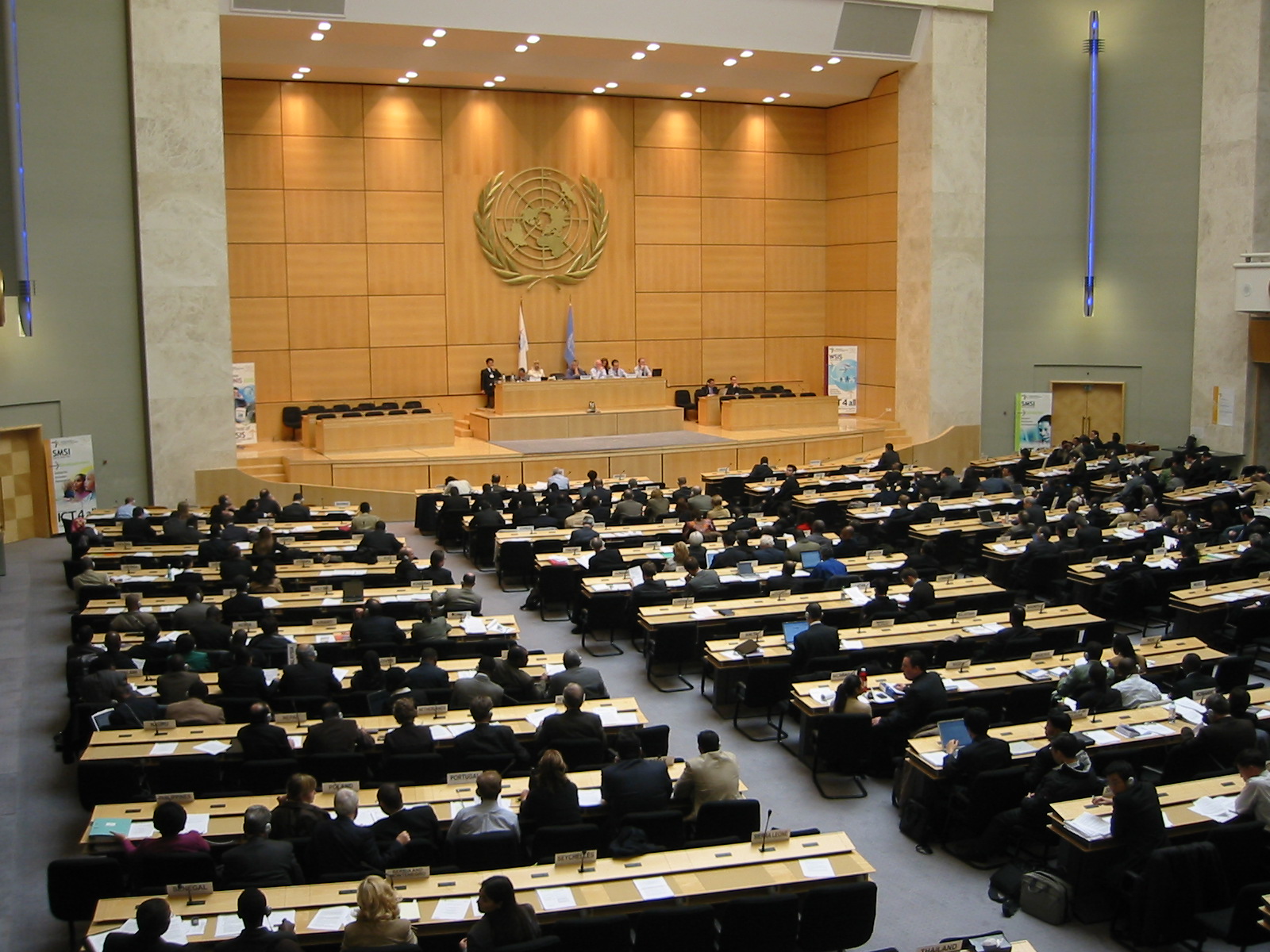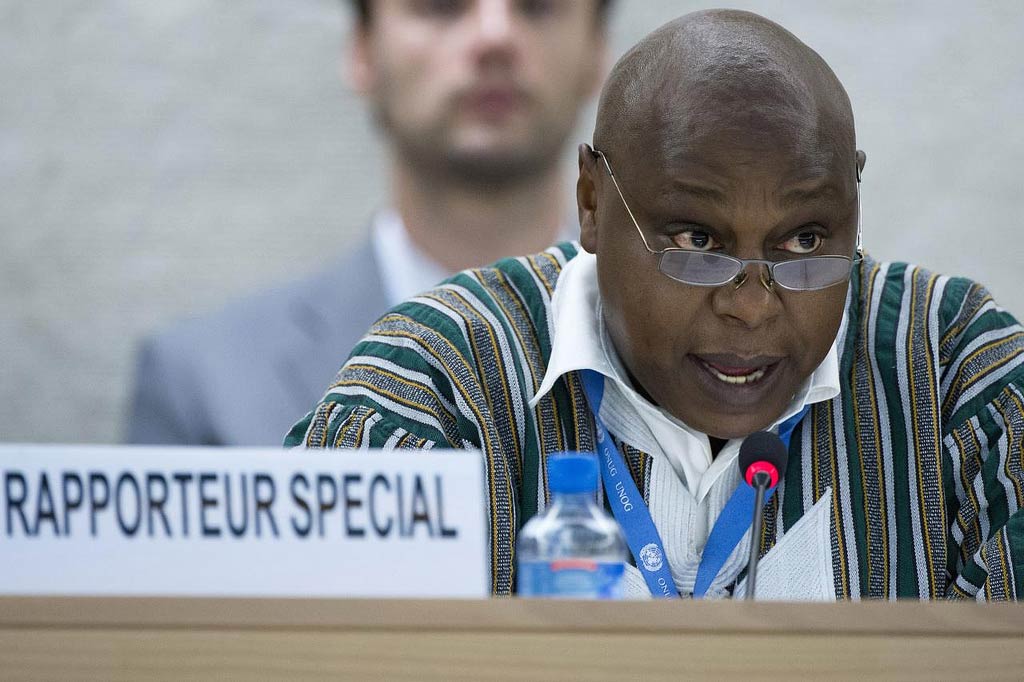(Geneva) – The United Nations and its Member States have a legal obligation to strengthen civil society participation, radically overhaul the system for accreditation of non-governmental organisations, and combat reprisals against those who cooperate with the UN, according to a major new report to be considered by the UN General Assembly.
According to the report, prepared by the UN Special Rapporteur on the Rights to Freedom of Peaceful Assembly and Association, Maina Kiai, a range of UN policies and practices are incompatible with the rights to freedom of association and assembly, while some Member States have systematically worked to prevent non-governmental organisations and individuals from engaging with the UN, even resorting to torture, arbitrary detention, surveillance and travel bans.
The report makes a series of concrete recommendations, many of which reflect those made in a major ISHR report to the Special Rapporteur in July 2014, to ensure that civil society can contribute to and strengthen the work of multilateral institutions, free from hindrance or attack.
‘A strong civil society is essential for multilateral institutions’ effectiveness, as it is often the best source of information on the ground,’ says the Special Rapporteur in the report.
In addition, States and multilateral institutions themselves have a legal obligation to ensure that people ‘can exercise their rights to freedom of peaceful assembly and of association in multilateral arenas,’ the Rapporteur says.
The report documents a range of ways in which the United Nations itself is falling short in this regard, including through an accreditation process for NGOs to participate at the Human Rights Council and other fora which is ‘long, complex, costly, beyond the capability of many small civil society organisations, and impossible to obtain for informal organisations and grass-roots networks.’
The Special Rapporteur is particularly critical that the accreditation process, which is overseen by States elected to the UN’s Committee on NGOs, has resulted in the systematic exclusion of NGOs working on issues such as women’s rights, sexual orientation and gender identity. ‘As of April 2014, out of the 48 organisations which have had their accreditations repeatedly deferred, 46 work on human rights issues,’ the report says. According to the Rapporteur, ‘States sitting on the Committee should champion the right to freedom of association and the right to freedom of peaceful assembly,’ with Mr Kiai praising Belgium, Chile, Mexico and Uruguay, in particular, for their ‘role in combating attempts by peer members to arbitrarily dismiss applications of NGOs’.
Welcoming Mr Kiai’s report, ISHR’s Michelle Evans said, ‘This report exposes the ways in which certain States use and abuse UN procedures to block or exclude NGOs and other civil society actors. We strongly support the Special Rapporteur’s call for the UN to “reform the Committee on Non-Governmental Organisations to prevent Member States from blocking accreditation applications with perpetual questioning and unilaterally vetoing applications”.’
‘The Special Rapporteur is absolutely right in saying that the UN, and other multilateral institutions, “function best when accessible to the greatest diversity of voices possible”,’ Ms Evans said.
In addition to expressing deep concern about the role of States such as China, Cuba, Russia and others in working to block applications for accreditation by NGOs or objecting to their participation, the Special Rapporteur also expresses ‘the utmost concern’ about States ‘repeatedly targeting individuals because of their advocacy work in multilateral arenas’.
According to the report, ‘there have been repeated instances of reprisals against individuals, or their relatives’ in connection with their engagement with the UN Human Rights Council, UN treaty bodies and UN human rights inquiries, with States including Azerbaijan, Bahrain, Bangladesh, China, Egypt, Sri Lanka and the United Arab Emirates specifically cited in this regard. In addition to direct attacks, the Rapporteur also warns of ‘the chilling effect of reprisals on civil society actors, often forcing them to censor themselves’.
States have an obligation to ‘provide full protection to those who participate or seek to participate in multilateral arenas,’ Mr Kiai says, reiterating previous calls for the UN General Assembly to support the designation of a high-level focal point to combat reprisals ‘as soon as possible’.
Welcoming the strong focus on reprisals, ISHR’s Eleanor Openshaw said, ‘This report provides concrete guidance to both States and multilateral institutions as to how they can safeguard the right to participation and combat cases of intimidation and reprisals.’
Consistently with recommendations made by ISHR in its major submission to the Special Rapporteur in July, recommendations made by the Special Rapporteur in this regard include that States should:
- refrain from any acts of intimidation or reprisal and publicly and unequivocally condemn cases where they occur;
- adopt and implement specific laws and policies to protect those engaging or seeking to engage with UN human rights mechanisms and other multilateral institutions;
- appoint a national focal point on reprisals; and
- ensure accountability for cases of reprisals, whether perpetrated by State or non-State actors, through prompt, thorough and impartial investigations, and access to justice for victims.
‘States should take strong and principled action at both the national and international levels to safeguard the right of all persons to communicate with the UN free from hindrance, threats and attacks,’ Ms Openshaw said.
Ms Evans and Ms Openshaw also welcomed the principles set out in the report to guide multilateral institutions in their engagement with civil society, including that NGOs and other civil society actors should have the right to full and effective participation in all meetings and activities, the right to comprehensive and fair access to information, and the right to submit documents and deliver statements on an equal footing with States and private sector actors.
‘The principles and recommendations set out in this report, many of which were strongly endorsed by ISHR in our submission to the Special Rapporteur, will assist to ensure both that multilateral institutions benefit from the rich and diverse input of civil society actors and that those actors are able to exercise their fundamental rights to freedom of expression, association and assembly,’ Ms Evans said.
The Special Rapporteur’s report is scheduled to be tabled and debated at the UN General Assembly in New York on 28 October 2014.




